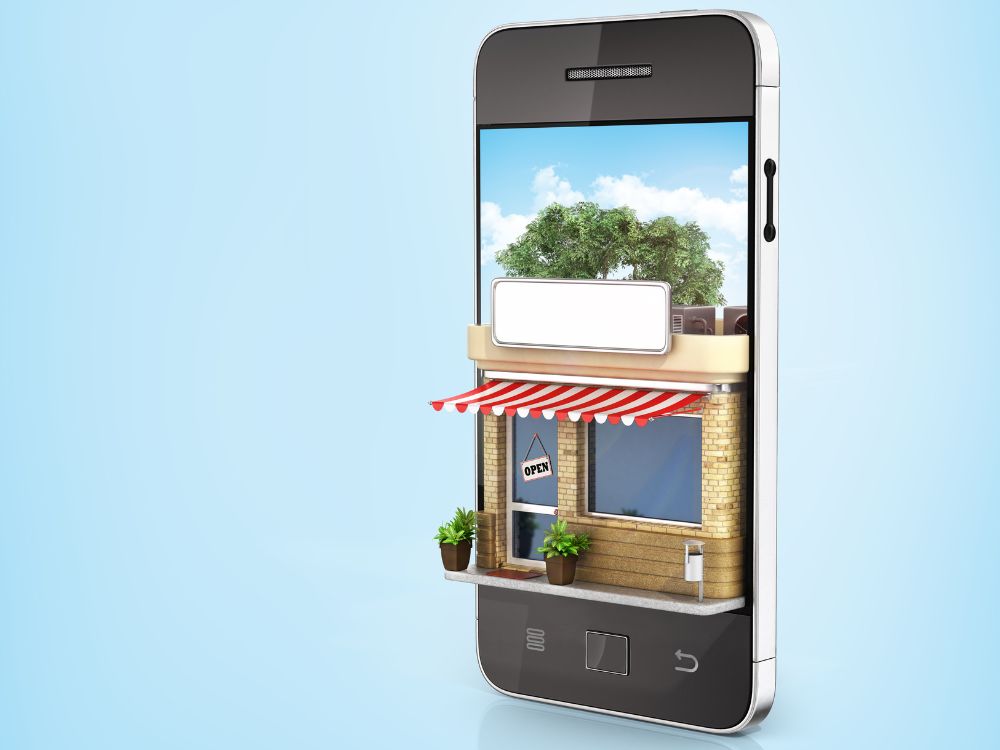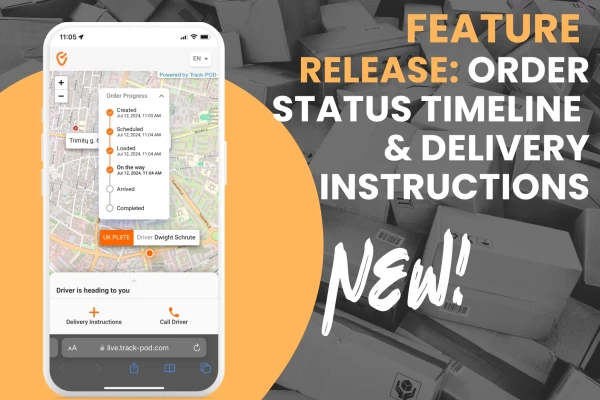Why Shopify Stores Fail (And How to Avoid the Same Fate)

by
Georgi Todorov
June 27, 2022
In this post, guest writer Georgi Todorov shares 10 reasons why Shopify stores fail and how you can avoid this fate.
Shopify is one of the most popular eCommerce platforms out there. Over half a million businesses use Shopify to run their online stores. That's because it's easy to use, has many features, and is relatively affordable.
However, not all Shopify stores are successful. In fact, many fail. In this article, we'll look at ten common reasons why Shopify stores fail and how you can avoid making the same mistakes.
They don't have a plan
One of the most common reasons why Shopify stores fail is because they don't have a plan. Without a plan, setting goals and tracking progress in this eCommerce platform is hard. Additionally, you may make decisions that conflict with each other, which can lead to a chaotic store.
A messy store, in turn, confuses customers. And when customers are confused, they're less likely to buy from you because they don't trust you. The solution is to create a business plan before launching your Shopify store. Your business plan should include the following.
Goals
Your goals should be specific, measurable, achievable, relevant, and time-bound. For example, your goal might be to increase sales by 20% in the next six months.
Competition
Knowing who your competition is, you can learn from their successes and failures. Additionally, you can find ways to differentiate your store from theirs.
Marketing strategy
Finally, you need to have a plan for how you're going to market your store. There's no point in having a great store if no one knows it exists.
Along with content-driven promotion, Shopify merchants can also use conversion-focused incentives like BOGO Shopify offers to encourage purchases and increase order value without relying only on ads.
To get some free exposure, you can use AI video generator to create engaging videos and post them on YouTube. You can also try to get some free exposure by allowing people to use your content in their own podcasts or videos.
They don't focus on the customer
Another common reason why Shopify stores fail is that they don't focus on the customer. They may be too focused on themselves, their products, or their bottom line. As a result, they forget that the customer is the most critical part of their business.
Customers are the ones who will be using your products, and they're the ones who will be giving you money.
To avoid this, you need always to keep the customer in mind. When making decisions about your store, understand how it will impact the customer.
For example, if you're thinking about adding a new feature to your store, ask yourself if it's something your customers want. Don't add features just for the sake of having them.
Also, remember that you might not be the ideal customer for your store, which means that you can't always trust your own opinion. So instead, get feedback from actual customers and use that to guide your decisions.
James Crawford, Co-Founder of DealDrop, says,
"The biggest mistake I see store owners make is not truly understanding their target market. They build a store and stock it with products they think are cool, without regard for whether their target market wants to buy them. This is a recipe for disaster."
They don't focus on their niche
Many Shopify stores try to be everything to everyone. They carry a wide range of products and try to appeal to as many people as possible. However, this is usually a mistake. It's much better to focus on a specific niche.
When you focus on a niche, you can become an expert in that area. As a result, you can build trust with your customers and offer them a better experience than stores with a wide range of products. Additionally, it's easier to market a store that has a specific focus.
It's much harder to market a store that sells everything.

They don't have a Unique Selling Proposition
Another common mistake that Shopify stores make is not having a unique selling proposition (USP). A USP is what makes your store different from all the other stores out there. It's what makes your store special.
Without a USP, it's challenging to stand out from the competition. And if you can't stand out, it's tough to attract customers. There are too many choices for customers to choose from. They're not going to select your store unless you give them a good reason.
Some things that can give you a unique selling point include.
-
Offering better prices than your competition.
-
Offering exceptional products that your competition doesn't carry.
-
Offering a better customer experience than your competition.
-
Offering on-demand or same-day delivery via a Shopify delivery app.
Michael Nemeroff, CEO & Co-Founder of Rush Order Tees, states,
"Your USP is what makes you different and worth paying attention to. It needs to be clear, interesting, and something your target market cares about."
They fail to build a brand
A lot of Shopify stores also fail to build a brand. They don't invest in branding, and as a result, their stores are forgettable. Branding is essential because it helps you build trust with your customers and makes your store more recognizable.
One thing that many Shopify owners don't realize is that customers don't buy products. They buy brands.
When customers see your products, they need to know that they can trust your store. They need to know that they're getting a quality product. But more importantly, they're buying a story. They're buying into what your store represents.
Aaron Gray, Managing Partner of NO-BS, says,
"Your brand is much more than just your logo or the design of your website. It's the feeling people get when they think about your company."
They don't focus on the details
The details are what make a great store great. It's the little things that you do that can have a significant impact on your business. Unfortunately, many Shopify stores don't focus on the details.
One of the most important things you can do is pay attention to your store's design. Your store should be visually appealing and easy to navigate with the right theme selection that reflects your brand identity. There are a variety of free Shopify themes available that you can customize with your preferred layout, brand colors and visual elements for a more engaging design. Also, high-quality Shopify store development ensures your store looks professional and makes an excellent first impression.

Another thing to pay attention to is your product descriptions. Your descriptions should be clear, and they should be compelling. They should tell customers what your product is and why they need it.
Customer service takes a backseat
Another detail that's often overlooked is customer service. Of course, your customers should always be your number one priority. But unfortunately, many stores take a backseat when it comes to customer service.
Customer service is crucial because it's the face of your business. It's how you interact with your customers, and it's how you build relationships with them. It's also how you handle problems and complaints.
If you want to succeed, you must ensure that your customer service is top-notch. You need to be responsive, and you need to be helpful. You also need to go above and beyond to solve problems.
They're not active on social media
The best Shopify stores don't just have a presence on social media; they're active on social media. They use social media to interact with their customers, and they use it to promote their products.
Social media is a powerful tool that can be used in several ways. For example, it can be used to build relationships with customers, generate leads, and drive traffic to your store.
Unfortunately, many Shopify stores don't use social media to its full potential. They're not active on social media, and as a result, they're missing out on a lot of opportunities.
If you want to be successful, you need to be active on social media. You need to post regularly, and you need to interact with your customers. You also need to use social media to promote your products.
They're not mobile-friendly
In today's world, having a mobile-friendly store is more important than ever. With most people now using smartphones and tablets to browse the web, your store must be optimized for mobile devices.
Unfortunately, many Shopify stores are not mobile-friendly. They're not designed for small screens, and as a result, they're not user-friendly. This can cause customers to have a poor experience on your site, leading to them leaving without making a purchase.
If you want to be successful, you must make sure your store is mobile-friendly. You need to design your store for small screens and make sure that it's easy to navigate on a mobile device, including having cart abandonment software.

They have a poor selection of products
Another reason why Shopify stores fail is their poor selection of products. When customers visit your store, they should be able to find what they're looking for. If they can't, they're likely to leave and never come back.
This is why it's so important to have a good selection of products through careful assortment planning. You need to have products that are popular and in demand. You also need to have products that are priced competitively.
You need to ensure that your store has a good selection of products. You need to research your products, and you need to find products that are in demand. You also need to make sure that your prices are competitive.
Conclusion
Shopify stores fail for a variety of reasons. But the good news is that you can avoid these reasons if you're aware of them. By paying attention to the details, you can set your store up for success in the near term and the long term.
About The Author
Georgi Todorov
Georgi Todorov is a digital marketer and founder of ThriveMyWay, where he shares actionable ecommerce and social media tips. Hit him up on Linkedin or Twitter under @GeorgiTodorovBG.








